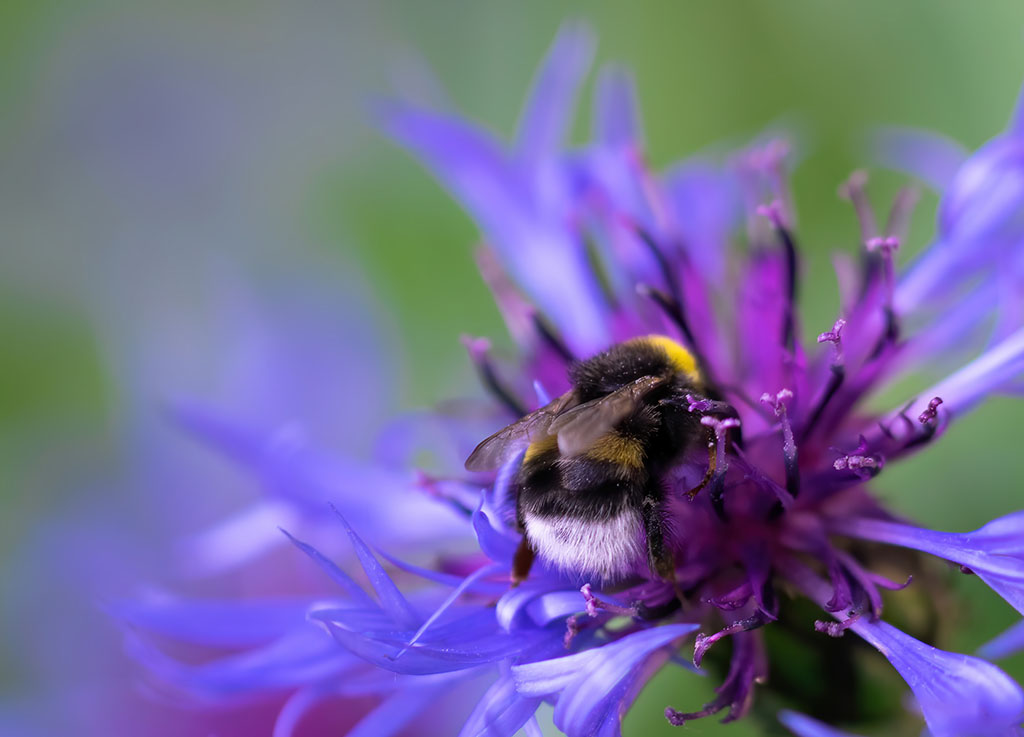Bees are important, not just because they make honey, but because they pollinate crops.
About one-third of the world’s food supply depends on bee pollination. So what’s causing the decline in bee populations?
Join us as we explore the possible causes of the pollination crisis.
What is Pollination and why is it Important for Plants and Crops to be Pollinated by Bees Specifically?
The pollination process involves pollen being transferred from male anthers to female stigmas.
By allowing pollen to be transmitted, plants are able to reproduce. For crops, pollination allows them to produce more seeds.
For a plant to reproduce, it must have both male and female parts (pollen and antheridium). The antheridium contains the pollen, and the pollen on the antheridium’s pollen grains acts as a male part of the plant.
When the pollen grains land on the stigma (the female part of the plant), they pollinate it. The pollen grains inside the female part of the plant become fertilised, which unleashes the pollen inside them, which fertilises the ovules inside.
These ovules then turn into seeds, and seeds are produced. Now that we have an idea of what pollination is, we need to look at why it is important for plants and crops to be pollinated by bees specifically.
Most plants and crops need pollination to reproduce, and insects like bees help plants reproduce by pollinating them. If plants are not pollinated, they will not reproduce, which will have a negative impact on their growth and development.
Bees play an important role in pollinating plants by transferring pollen from the male part of the plant to the female part of the plant. They do this by flying from one plant to another, carrying pollen grains.
This is vital for many plants and crops, and without it, they would not be able to reproduce.
How Does the Disappearance of Bees Impact our Food Production System, Both in the Short-Term, and Long-Term?
The effects of bee disappearance are irreversible and drastic.
The loss of bees from the ecosystem would drastically affect agriculture. With so many plants and animals needing pollination to reproduce, helping insects like bees spread pollen is crucial.
It would be impossible for crops and animals to thrive without plant reproduction, which would negatively affect the environment. Because minor disruptions in food production can have a ripple effect throughout the economy, it is likely that climate change will cause widespread crop failures, leading to higher food prices.
So, long-term conservation efforts could ultimately allow harvests to continue while reducing the losses that farmers face because of climate change. In the long term, there is also the possibility of losing key crops that depend on bees to reproduce.
Bees and other insects contribute significantly to our food supply chain, so their disappearance would negatively affect our ability to grow and harvest crops.
What are Some Possible Reasons for the Sudden Decline in Bee Populations Around the World, And What can we do to Help Reverse This Trend?
The effects of climate change are evident all around the world, and bee populations are declining as a result.
Recent findings have shown that habitat loss, parasites, pesticide exposure, pests and disease, invasive species of carpenter bees, and many other factors have impacted bee populations around the world. Bees play a huge role in our ecosystem, as they pollinate up to one third of the food crops we use in our daily lives.
Although the main cause of the decline in global bee populations is still unknown, there is definitely something we can do to reverse this trend. Some suggested actions include planting more trees in our cities, encouraging communities to plant more bee-friendly plants, and replacing chemical-laden pesticides with more natural alternatives that can help protect bee populations from harmful pesticides.
In the press, a company called Defra has launched a programme called “The Healthy Bees Plan 2030“. The primary goal is to try and protect the bees.
They know that the honey bees contribute directly to local food production and play an important role in the nation’s growing economy. They also know the importance of the bee species pollinating the local crops, which contributes significantly to food production and the increasingly competitive environment.
So, as we can see, it isn’t too late to reverse the effects caused by the destruction of our native bee species. However, this will require a huge effort.
And the success of such efforts will depend on how people are educated on the importance of protecting bees and other pollinators.
Can Humans Live Without Bees? Or Will we Eventually Face a Food Shortage if Their Numbers Continue to Dwindle at This Alarming Rate?
From what we have discussed so far, I think it is pretty clear that as humans, our world would not survive without bees.
However, we might argue that we can adapt to a new way of life without bees. However, such a notion is far from the truth.
We depend on bees for so many things, and we cannot simply hope that they will continue to exist for us. It is inevitable that one day bees will become extinct, and humans will be forced to adapt to a new way of life, which will obviously cause a shortage of food.
If we get ahead of the game, we can start to plan ways to prevent this from happening. We can start by making bee-friendly habitats and educating people on the importance of bees. We should use everything in our power to ensure the survival of bees.
How can we Help Support bee Populations?
There are many ways in which we can start to help support bee populations.
We can plant more flowers in our gardens and make sure that the bees have access to them. We must make sure not to destroy their habitats, such as by cutting down trees or spraying pesticides over them.
We can also, of course, completely stop using pesticides and herbicides, which will inevitably help to support bee populations. There are other things we can do, such as not using harsh cleaning chemicals in homes, which can help support bee populations too.
These are just a few things that we can do. Below is a list highlighting some of the more important things that we can and should do to support the bees:
- More bee and pollinator friendly gardens should be designed and built.
- Beehives and native bee homes should be established.
- Increase the number of bee baths.
- Host fundraisers to assist in the collection of funds for the bees and to support local beekeepers and organisations.
- Create new beehives for native bees.
- More trees should be planted and grown for the benefit of the bees.
- Teach the importance of bees to future generations.
- Eliminate the use of chemicals in the garden.
As we can see, there is much that we can do to make the bee colonies thrive.
There are also many things that we can do that aren’t going to cost too much money and will instead have a positive effect on the bees.
Conclusion
Bees play a crucial role in pollination, and their disappearance could have a serious impact on our food production system.
There are several possible reasons for the sudden decline in bee populations around the world, but we can all do our part to help support these important creatures. By planting bee-friendly flowers, avoiding the use of pesticides, and raising awareness about the importance of bees, we can work together to ensure their survival.

